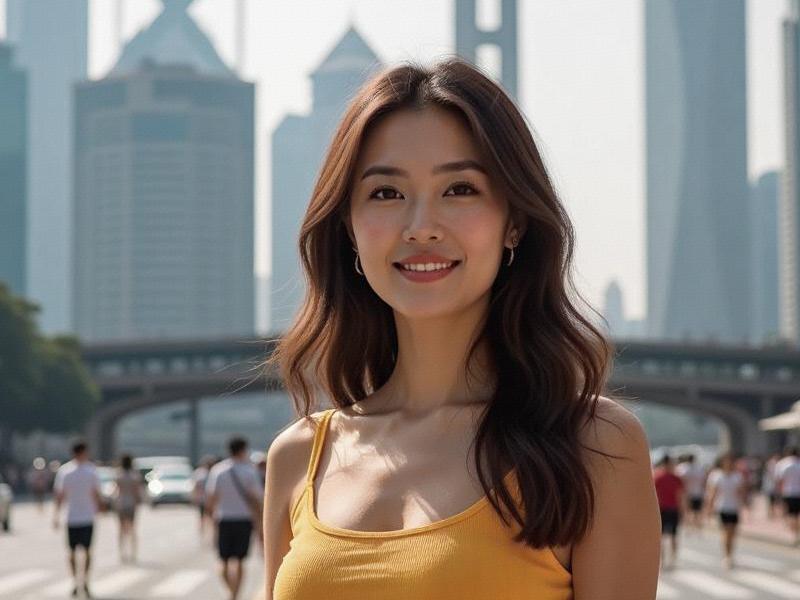This feature explores how Shanghai's women are creating a distinctive blend of Eastern and Western beauty ideals while breaking stereotypes in business, arts, and society. The article profiles diverse Shanghai women shaping the city's cultural landscape in 2025.

The morning rush hour at Shanghai's People Square station offers a fascinating study in contrasts. Among the commuters, 28-year-old tech entrepreneur Zhang Meili adjusts her qipao-inspired blazer while reviewing funding proposals on her tablet. Nearby, 65-year-old retired ballet teacher Madame Wu carries her tai chi fan with the same poise she once commanded on stage. These women represent the multifaceted beauty of Shanghai - a city where traditional Chinese aesthetics meet global modernity in unexpected ways.
Shanghai has long been China's fashion capital, but 2025 marks a significant shift. "We're moving beyond the 'Paris of the East' cliché," explains fashion historian Professor Elena Chu. "Shanghai women are creating something uniquely their own - call it 'Hu-style' after the city's abbreviation." This distinctive aesthetic blends cheongsam silhouettes with techwear fabrics, Ming dynasty-inspired makeup with augmented reality accessories.
The business world reflects this transformation. At last month's Shanghai International Finance Forum, a record 42% of keynote speakers were women - including 35-year-old hedge fund manager Olivia Wang, named among Fortune's "40 Under 40." "My grandmother bound her feet; I'm helping bind global markets," Wang remarked during her viral TEDxShanghai talk about "Financial Feminism."
上海龙凤419会所
Cultural institutions are taking note. The newly reopened Shanghai Museum of Contemporary Art debuted its "Women Shaping Shanghai" exhibition, featuring everything from avant-garde installations by female artists to historical displays about the city's "Nühao" (female entrepreneurs) of the 1920s. Curator Liu Yifei explains: "Shanghai women have always been pioneers - in the 1930s they fought for education rights, today they're leading in quantum computing and space tech."
Beauty standards are evolving too. While whitening creams still dominate pharmacy shelves, local brands like "Shanghai Chroma" are promoting inclusive campaigns celebrating the city's diverse complexions. Social media star Xia Lulu, with her unapologetic freckles and advocacy for "real skin," has amassed 8 million followers challenging traditional ideals.
上海龙凤阿拉后花园
The dating scene mirrors these changes. At popular matchmaking events in Jing'an Park, women increasingly prioritize "three no's" - no smoking, no gender bias, no expectation they'll abandon careers. "My mother married for stability," says 30-year-old architect Chen Yue. "I want intellectual chemistry and shared values."
Challenges persist, particularly around workplace equality and aging stereotypes. However, Shanghai's women are addressing these through innovative platforms like the "Digital Nüshu" app preserving women's historical scripts while connecting modern professionals. As sociologist Dr. Emma Zhao observes: "Shanghai women aren't waiting for permission to redefine beauty - they're writing the rules themselves, one cheongsam-wearing robotics engineer at a time."
上海娱乐联盟
This cultural shift extends beyond the city. When Shanghai-born director Angela Li won Best International Feature at this year's Oscars, her acceptance speech in Shanghainese dialect sparked a linguistic pride movement. Meanwhile, the "Shanghai Auntie" phenomenon - celebrating the confidence and style of older women - has inspired TikTok challenges worldwide.
As the sun sets over the Huangpu River, the city's women continue their dance between tradition and innovation. From the silk markets of Old Town to the neon-lit skyscrapers of Pudong, Shanghai's true beauty increasingly wears a female face - complex, ambitious, and unapologetically local while effortlessly global.